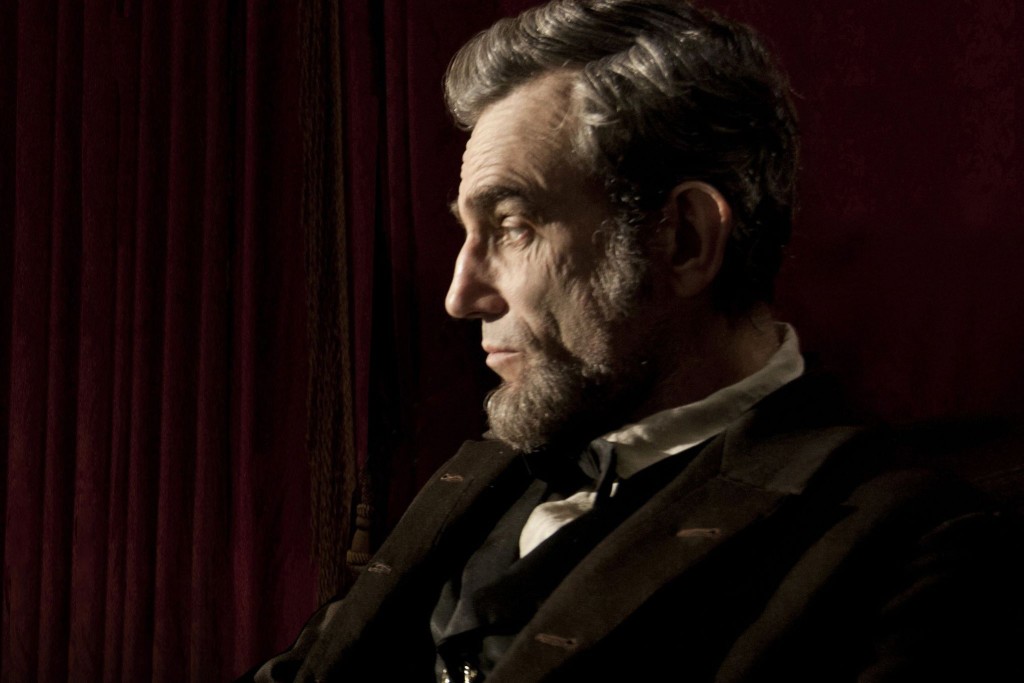Today is Election Day—the perfect day to revisit one of the finest films made about American politics this decade.
In shooting Lincoln, Steven Spielberg said he “wanted to show that [Abraham Lincoln] was a man, not a monument.” He succeeded, admirably.
Honest Abe is one of America’s most beloved presidents and the temptation to swathe him in a stultifying cloak of adulation must have been great. Fortunately, star Daniel Day-Lewis and scriptwriter Tony Kushner had other ideas. Lincoln takes the struggle to pass the Thirteenth Amendment and fashions not only a gripping political drama, but also a compelling portrait of a president in the last four months of his life. Far from a stolid history lesson, the film is a vivid examination of the human capacity for cruelty and courage.
Day-Lewis’ astonishing central performance—by turns witty, cunning and wise—drives the film. He appears in almost every scene and even when not on-screen, his presence seems to linger, pushing other characters to reveal the best or worst in their natures. Lincoln was a man of many faces, and Day-Lewis is comfortable with them all: the familiar, folksy man of the people, telling off-colour tales to pass the time or prove a point; the statesman thundering at his recalcitrant Cabinet (“I am the President of the United States, clothed in immense power!”); and the tender father, curling up beside his young son Tad (Gulliver McGrath), asleep by the fire.
Just don’t expect Lincoln to have the strong, commanding baritone of Raymond Massey in Abe Lincoln in Illinois. Contemporary sources suggest that the president’s voice was actually higher pitched and a little nasal—rather like how Day-Lewis sounds in the movie.
Besides Day-Lewis, the film belongs to Tommy Lee Jones as the magnificently crotchety and acerbic reformer Thaddeus Stevens. Stevens was prone to verbally eviscerating his opponents on the Senate floor, and Jones sinks his teeth into the role, delivering every put-down with relish.
At times, the film is unexpectedly funny, with much of the humour centred on a trio of unscrupulous lobbyists whom Lincoln’s long-suffering Secretary of State (David Strathairn), hires to push through the Thirteenth Amendment. Who knew one of the noblest laws in the United States owed its existence to all manner of skulduggery?
Although the movie boasts a great script and solid production values which pull audiences into the period, Lincoln’s greatest strength is its supporting cast. Sally Field excels in the difficult role of Mary Todd Lincoln, trying so hard to be a helpmeet to her husband, yet unable to cope with her own emotional burdens. David Strathairn’s William Seward frets and sighs and argues, but loyally supports Lincoln regardless, while James Spader swaggers across the screen as Bilbo, the unabashedly brazen lobbyist from Tennessee. It’s a pity we could not spend more time with Ulysses S. Grant (Mad Men’s Jared Harris).
A complex study of a complex man, Lincoln is above all a reminder of the power of conscience. It is a pledge, to history and to ourselves, that when put to the test, neither we nor the leaders we choose will be found wanting.

Leave a Reply